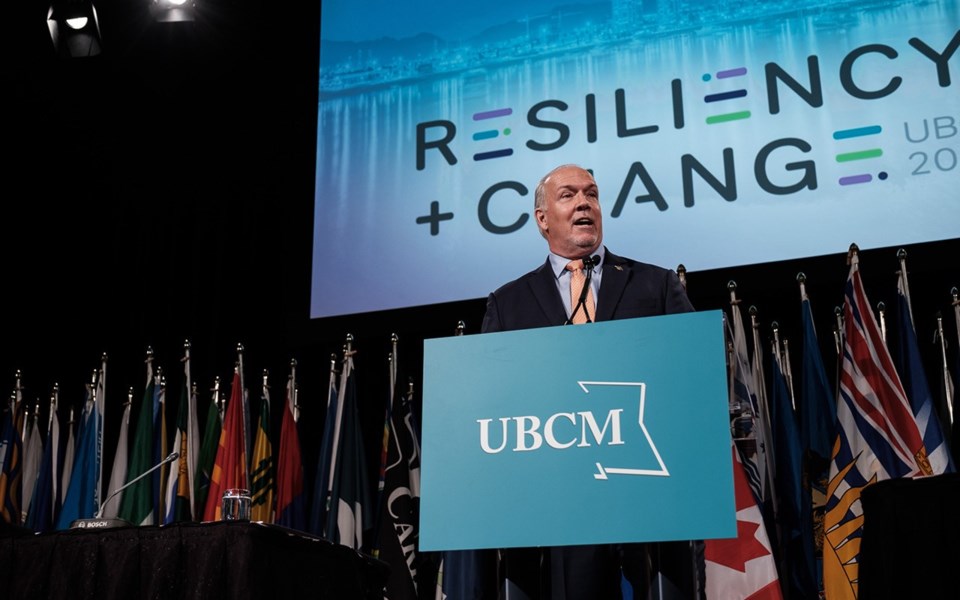Whistler's mayor, council and senior staff members met with seven provincial ministers during another busy Union of BC Municipalities (UBCM) convention in Vancouver from Sept. 23 to 27, discussing everything from wildfire to childcare.
While officials say they're making headway on those and other issues, regional transit remains a sticking point for the provincial government.
"It ultimately comes down to funding," said Mayor Jack Crompton, expressing disappointment that a regional transit service isn't moving ahead yet.
"The province is not interested in implementing a motor-fuel tax, [and] without a funding model we are unlikely to see regional transit in the near future."
The Resort Municipality of Whistler will "continue working with corridor mayors and with the regional district" to make regional transit a reality, Crompton said.
Whistler's UBCM itinerary included meetings with ministers Carole James (finance), George Heyman (environment and climate change), Lisa Beare (tourism, arts and culture), Doug Donaldson (forests, lands and natural resource operations), Katrina Chen (child care), Judy Darcy (mental health and addictions) and Claire Trevena (transportation and infrastructure).
The threat of wildfire in Whistler-and how it might impact the provincial tourism economy-was raised with both Beare and Donaldson, Crompton said.
"We asked both ... to consider supporting additional funding to protect our community," he said.
We made the case that Whistler's contribution to the provincial economy would be drastically impaired by a fire in the valley ... Council's priority is to protect Whistler and Whistlerites, but putting it in terms of the provincial tourism economy hopefully compels their increased participation."
Councillor Arthur De Jong, attending his first UBCM, once again raised the issue of climate change and waste reduction with Heyman.
The message was timely given that, later in the week, nearly 100,000 would join a climate strike march that started right outside the convention centre.
"I used some numbers, but also said simply it's not right to have kids tell us what needs to be done, nor is it right that provincial legislation handcuffs us from what needs to be done," De Jong said.
"Local governments can not be handcuffed from passing bylaws specific to GHG waste reduction; we must be empowered to do that."
De Jong said he believed the message was well received.
"This will happen, but we can't wait three, five years for this anymore," he said.
"We need a sprint, we can't crawl, and I think the minister really understands that, but he has no doubt layers of challenges that I probably can't see in terms of changing legislation, but we look for clarity on this soon."
Coun. Jen Ford was also honoured to be elected as third vice president for the UBCM's presidents committee at the convention.
Essentially the committee "will be working on moving the UBCM's mandate forward with the premier," Ford said.
"It's a pretty big honour, and it's really good for our community."
While things like infrastructure and road safety were still important topics, Ford said this year's convention saw an increased focus on climate change and healthcare.
One "really exciting" announcement out of the convention was regarding a community action team being assigned to the Sea to Sky corridor, which will escalate local, integrated planning and strategies in response to the opioid crisis.
"It's unfortunate that we need that service, but we do need that service," Ford said.
"And they've committed to giving us that team."




